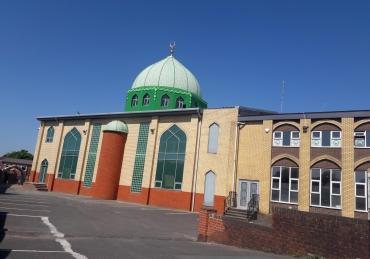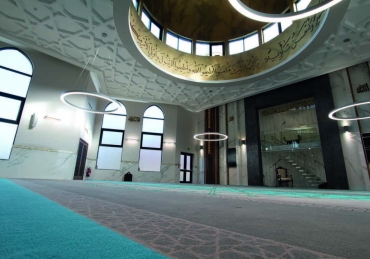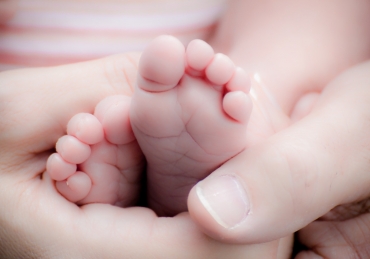Coronavirus deaths and ruling on Ghusl
Question
According to the current UK government guidelines, the bathing of bodies infected with Covid-19 (Coronavirus) or presumptive Covid is possible with Personal Protective Equipment (PPE). These guidelines are subject to change at any time. Some medical professionals do not agree with this position and suggest bathing should be prohibited altogether.
In the event of death, the hospitals place the deceased in sealed body bags to avoid further contamination. Once the body is sealed in the bag, there could be gas build up in the bag. If the sealed bag is opened, the virus could become airborne and potentially affect the people carrying out the Ghusl. This risk can be reduced if PPE is worn and the other hygiene recommendations are adhered to. However, if the number of deaths increase, managing this could become extremely difficult. This is because the PPE required is FFFP3 mask, for which currently staff in the NHS need to go for a full fit test. This test is failed on anyone who has a beard because the mask is deemed insufficient. There is an alternative available to the mask, which is a full hooded respirator mask, however their availability is extremely limited in most NHS Trusts because they are imported from abroad.
Due to the risks involved in opening the sealed bag and the risks involved during the bathing process, combined with the fact that the management of all the safety requirements will be close to impossible if the cases increase, what is the Islamic perspective in relation to not performing Ghusl? In addition, if the body is sealed in the bag, will the bag suffice as the shroud?
(For other Q&As & articles regarding Coronavirus, click here)
بسم الله الرحمن الرحیم
Answer
Bathing the deceased is obligatory in Islam and forms an essential part of honouring the deceased. Therefore, every attempt must be made to bathe the deceased as long as there is no significant risk of harm to those involved.
In the current circumstance, our advice is that the deceased should be bathed with the necessary precautions and safeguards stipulated by the NHS. This, however, does not require touching the body or following the routine Ghusl process. It is sufficient for the water to reach the body.
Therefore, if the standard method of Ghusl is being used, pouring water over the body is sufficient. There is no need to prolong the Ghusl by following all the recommended actions in terms of making the deceased do ablution and the other standard practices. Simply pouring water over the deceased is sufficient. In this way, the deceased can be bathed very quickly (similar to how it is routinely done in Ḥaramayn), and this would make it easier to cope if the number of deaths increase.
Other possible solutions that could be considered are as follows:
- Create a hole in the bag, or open the zip, and fill the bag with warm water and an antiseptic like Dettol. Thereafter, release the water from the bag and re-seal.
- Fill a bath tub with warm water and an antiseptic like Dettol, and dip the entire body therein and shroud the body thereafter as normal if possible, and seal in a bag.
In reaching this conclusion, we have consulted with medical professionals who have strongly advised that this task is undertaken by a limited number of trained young people without any medical conditions, who are least likely to be affected by the virus.
Please note this edict is based on the current situation in the UK as of 13 March 2020. If, however, the government prohibits opening the sealed bag, or the number of deaths increases to an unmanageable level, then due to exceptional circumstances, burial can take place without Ghusl. In this scenario, tayummum should be performed on the deceased. A Mufti should also be consulted at this stage.
In relation to the shroud (kafan), if it is not possible to shroud the deceased in the normal way, the shroud can be placed above the bag. The bag can also act as the shroud as long as it is not transparent or translucent (semi-transparent). If it is transparent or translucent, the shroud must be placed above the bag.
In all the aforementioned circumstances, Janāzah Ṣalāh will be performed as usual.
Addendum (17 March 2020): The regulatory advice in relation to handling bodies has been relaxed from the initial advice issued initially. Therefore, whilst it is advised that the necessary precautions are taken, there should be no reason at this stage to not perform Ghusl and shroud the body. Therefore, a limited number of individuals should perform the Ghusl and apply the normal Kafan (shroud) as usual. If necessary, it is sufficient to suffice with pouring water over the body. It is also advised that the number of people involved during the bathing and shrouding process is kept to a minimum.
The following is an excerpt from the joint advice issued by the UK Department of Health and Social Care (DHSC), and the Public Health bodies of England, Scotland, Northern Ireland and Wales on 13 March 2020:
“Where the deceased was known or suspected to have been infected with COVID-19, there is no requirement for a body bag, and viewing, hygienic preparations, post-mortem and embalming are all permitted.” (Covid-19: Guidance for infection prevention and control in healthcare settings, p.30)
قال الله تعالى: لا يكلف الله نفسا إلا وسعها. وفي المدونة (١/٢٦١): وسئل مالك عن الذي تصيبه القروح فيموت وقد غمرت القروح جسده، وهم يخافون غسله أن يتزلع. قال: يصب عليه الماء صبا على قدر طاقتهم، انتهى. وقال ابن قدامة في المغني (٢/٤٠٢): والمجدور، والمحترق، والغريق، إذا أمكن غسله غسل، وإن خيف تقطعه بالغسل صب عليه الماء صبا، ولم يمس، انتهى. وقال البرهان بن مفلح في المبدع (٢/٢٤٢): وقال ابن أبي موسى: المحترق، والمجذوم، والمبضع، يصب الماء عليه صبا، ثم يكفن، انتهى. وراجع الإنصاف (٢/٥٠٥). وقال الشرنبلالي في المراقي (ص ٥٦٩): والمنتفخ الذي تعذر مسه يصب عليه الماء، انتهى. وفي الفتاوى الهندية (١/١٥٨): ولو كان الميت متفسخا يتعذر مسحه كفى صب الماء عليه، كذا في التتارخانية ناقلا عن العتابية، انتهى۔
وأما عدم الغسل عند الضرورة فقال الخرشي في شرح مختصر خليل (٢/١٣٢): وكذلك يجوز إذا كثرت الموتى ترك الدلك أو الغسل، انتهى. وقال الدسوقي في حاشيته (١/٤٠٨): وأما من تعذر غسله وتيممه كما إذا كثرت الموتى جدا فغسله مطلوب ابتداء لكن يسقط للتعذر، انتهى۔
وقال ابن أبي عمر في الشرح الكبير على متن المقنع (٢/٣٣٧): (ومن تعذر غسله يمم) من تعذر غسله لعدم الماء وللخوف عليه من التقطع بالغسل كالمجدور والغريق والمحترق يمم اذا أمكن، كالحي العادم للماء أو الذي يؤذيه الماء، وإن أمكن غسل بعضه غسل ويمم للباقي كالحي، ويحتمل ألا يمم ويصلى عليه على حسب حاله، ذكره ابن عقيل، لأن المقصود بغسل الميت التنظيف ولا يحصل ذلك بالتيمم، والأول أصح إن أمكن غسله بأن يصب عليه الماء صبا ولا يمس غسل كذلك، انتهى۔
وفي الباب ما روى مالك (١٦٠٣) عن عبد الله بن أبي بكر بن حزم، عن ابن أبي مليكة، أن عمر بن الخطاب مر بامرأة مجذومة، وهي تطوف بالبيت. فقال لها: يا أمة الله. لا تؤذي الناس. لو جلست في بيتك. فجلست. فمر بها رجل بعد ذلك. فقال لها: إن الذي كان قد نهاك، قد مات، فاخرجي. فقالت: ما كنت لأطيعه حيا، وأعصيه ميتا. وعن ابن عباس مرفوعا: لا ضرر ولا ضرار، رواه ابن ماجه (٢٣٤٠) بسند فيه جابر الجعفي، ورواه الحاكم (٢٣٤٥) من حديث أبي سعيد الخدري وصححه على شرط مسلم وأقره الذهبي. وعن أبي هريرة مرفوعا: لا عدوى ولا طيرة، ولا هامة ولا صفر، وفر من المجذوم كما تفر من الأسد، رواه البخاري (٥٧٠٧)۔
ثم الظاهر عند عدم إمكان الغسل أن يمم الميت إذا أمكن ذلك، كما قال محمد في الأصل (١/٣٦٢): قلت: أرأيت المرأة تموت مع الرجال أو الرجل يموت مع النساء ليس معهن من يغسله؟ قال: ييمم كل واحد منهما بالصعيد الوجه والذراعين من وراء الثوب. وقال (٢/٢٤١): وإذا مات الرجل مع النساء ذوات المحرم منه صنعن به كما وصفت لك من التيمم في ذوات المحرم من الرجل في المرأة. ولو كن لسن بذوات محرم منه فييممنه الصعيد كما وصفت لك من وراء الثوب، إلا امرأته خاصة، فإنها تغسله، انتهى۔
وأما الكفن فروى البخاري (١٢٧٦) عن خباب رضي الله عنه قال: هاجرنا مع النبي صلى الله عليه وسلم نلتمس وجه الله، فوقع أجرنا على الله، فمنا من مات لم يأكل من أجره شيئا، منهم مصعب بن عمير ومنا من أينعت له ثمرته، فهو يهدبها، قتل يوم أحد، فلم نجد ما نكفنه إلا بردة إذا غطينا بها رأسه خرجت رجلاه، وإذا غطينا رجليه خرج رأسه، فأمرنا النبي صلى الله عليه وسلم أن نغطي رأسه، وأن نجعل على رجليه من الإذخر. وقال محمد في الأصل (١/٣٥٩): قلت: فإن كفن الرجل في ثوب واحد؟ قال: ما أحب له أن ينقص من ثوبين. قلت: فإن فعلوا فكفنوه في ثوب واحد؟ قال: يجزئ وقد أساؤوا، انتهى۔
Allah know best
Yusuf Shabbir
18 Rajab 1441 / 13 March 2020
Approved by: Mufti Shabbir Ahmad and Mufti Muhammad Tahir







